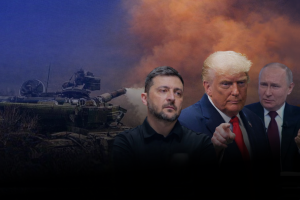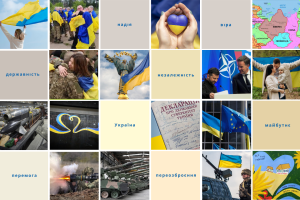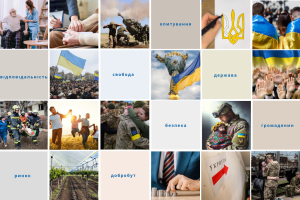After Russia initiated the full-scale invasion, Ukrainians have decreased the consumption of cultural content in Russian. At the same time, there are many Ukrainians who continue to consume it, which is why regulating this sphere and tracking the potential destructive Russian influence remains important.
The term Russian cultural content refers to books, cinema and TV series, music, TV shows, etc. that are produced by Russia or its historical predecessors, such as the USSR and the Russian Empire; the language of such content is typically Russian.
This research was conducted with the financial support of PONARS-Eurasia. As part of the research, 3 focus groups were held in December 2022: 2 with those who consume Russian cultural content or those who used to do so but no longer do and 1 with cultural activists that promote or create Ukrainian cultural content.
Also, six questions were included with the financial support of PONARS-Eurasia into the nationwide survey conducted by Ilko Kucheriv Democratic Initiatives Foundation together with the Razumkov Center Sociological Service from December 13 to December 21, 2022, under support of MATRA Program.
The main conclusions are:
Even though the priority of the Ukrainian state remains defense, the present moment is the best time to regulate the spread of cultural content in the Russian language in Ukraine to form an independent information sphere as well as safeguard and strengthen the Ukrainian national identity.
Our team believes that the state policy regulating cultural content should be guided by these three key principles:
1) The preservation of freedom of speech and expression as well as the right to participate in cultural life;
2) The focus on state security, the banishment of harmful or dangerous cultural content in the Russian language that justifies modern Russian chauvinistic ideology;
3) The support of the development of Ukrainian cultural content (in the Ukrainian language) and its popularization.
With these principles in mind, our recommendations are as follows:
1) The state should not seek to ban all cultural content in the Russian language but rather seek a more targeted response. The society supports restrictions on Russian movies and tours by Russian music artists, but despite Russia’s ongoing war of aggression some Ukrainians still consume various Russian cultural content. Many Ukrainians want to forego the consumption of Russian cultural content, which is why there is a need to promote existing Ukrainian cultural alternatives or support the creation of new alternatives to Russian cultural content.
2) The state should provide grants and economic privileges to support the creators of Ukrainian cultural content, especially when it comes to content for children. Respondents often noted that there is a shortage of Ukrainian cultural content for children, and Russian cultural content is often the only available alternative. The development of Ukrainian cultural content for children should be a priority. As far as other types of content are concerned, there is a need to create niche content in the Ukrainian language, such as that related to video games, virtual universes, popular culture, etc.
3) The state should not ban the creation of cultural content in the Russian language in Ukraine because that goes against the freedom of speech and expression and is not supported by public opinion. On the other hand, the state should not finance cultural projects in the Russian language, a notion that most Ukrainians agree with – most Ukrainians have a negative perception of financing cultural projects in the Russian language during the war with Russia. Ukraine should support Ukrainian content by means of financial stimuli, such as lower taxation for the creators of Ukrainian content.
4) The state should formulate clear criteria defining the works by Russian authors that should not be studied at schools or other educational establishments. Respondents don’t believe that many such works should be studied but believe that works that are considered world classics or works by authors with Ukrainian background can be studied.
5) The state should reconsider its information policy. Many respondents do not believe that the state should finance information sources in the Russian language. Instead, they believe that the state should support Ukrainian cultural projects targeting the Ukrainian diaspora and those Ukrainians who relocated abroad as a result of Russia’s aggression.
Download ↓
Illustration: Boris Séméniako








